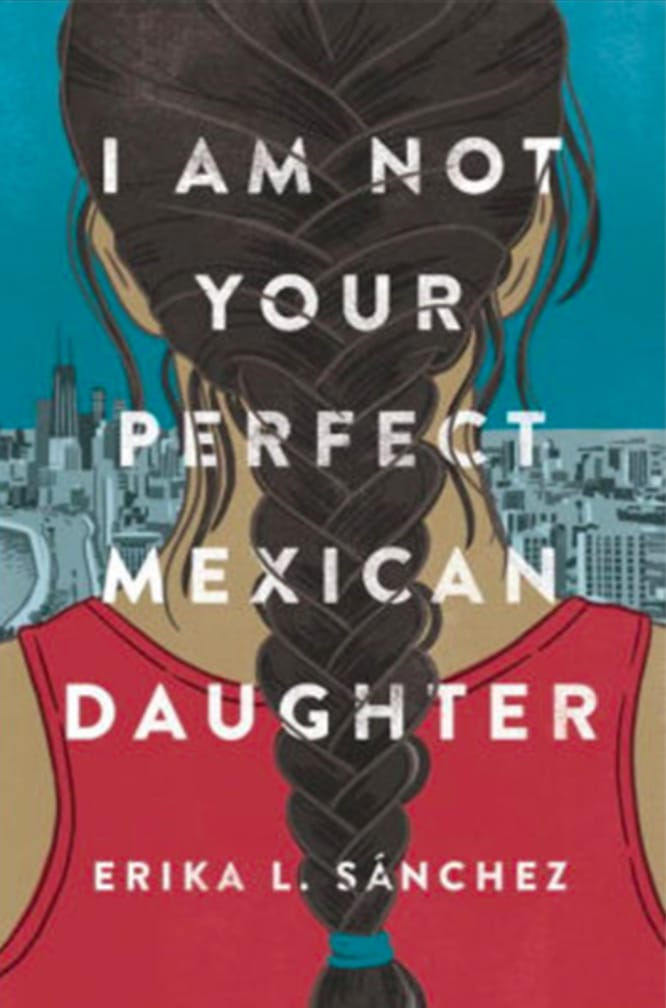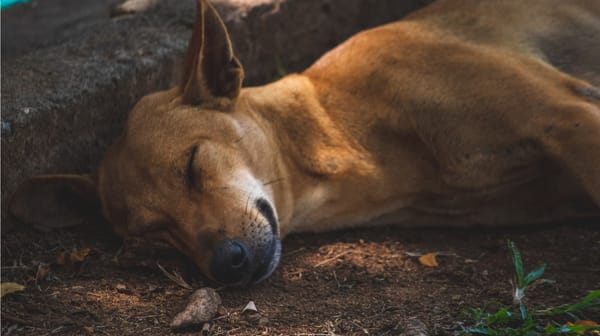I Am Not Your Perfect Mexican Daughter: Personal Essay

“But how do we live with these secrets locked within us? How do we tie our shoes, brush our hair, drink coffee, wash the dishes, and go to sleep, pretending everything is fine? How do we laugh and feel happiness despite the buried things growing inside? How can we do that day after day?”
No one is a stranger to the comforting and familiar feeling of desolation or hopelessness. Some more than others. More often than intended. It’s not a unique experience to a certain race, ethnicity, culture, wherever we may come from. Perhaps it’s what unites us more than happiness although it shouldn’t be that way.
Julia’s story is one of many of ours, equally different too. We’ve both been through similar experiences, but there’s one point that stood out to me the most: her mental health in a Mexican household. It’s one of the reasons why we’re able to read her story in the first place, because it’s not something s he could’ve said to her parents, especially her mother.
Just as mine. My parents would get mad and tell me that I should be grateful for all that they’ve given me; basic necessities like food, water, and a roof to live under. I wish I’d told them they’d be in jail if they didn’t provide those things for me, a child, but back then I didn’t know any better. Since parents are supposed to know everything, I tried my best to stop being so sad.
It’s a disappointing reality that we have to hide ourselves from our family, or anyone at that matter. If everyone one of us goes through the same wave of emotions, shouldn’t it be easier to speak about it? Yet, it’s treated as a taboo to just even mention it before someone tries to quickly change the subject. Or maybe we, ourselves, change it before anyone can feel pity or look down at us.
I’ve lost count how many times I’ve done the same thing. Mexicans are particularly “playful”. But like anything, too much of it is bad. I say this because mental health gets mocked and trivialized. It’s often treated as juicy gossip, something equal to a novela. Everyone’s just waiting on what’s going to happen next or what said person will say to completely disregard it.
I cannot count how many times it’s happened to me at home or in family gatherings. Maybe that’s one of the reasons why I separated myself from extended family, another taboo for Mexicans. Even at a young age I struggled with my mental health before I even knew what it was that had my soul crying out to break free. The signs I showed for depression were ridiculed by aunts, uncles, and cousins alike.
It’s embarrassing to admit, but I was also an angry child. I’d throw tantrums, talk back, make face, and at times be insulting. In every instance I’d end up crying. I didn’t want to, but no one would listen to me until I did. I use “listen” very loosely, because they’d whisper to my parents about being a problem child or being a malcriada.
“I don’t understand why everyone just complains about who I am. What am I supposed to do? Say I’m sorry? I’m sorry I can’t be normal? I’m sorry I’m such a bad daughter? I’m sorry I hate the life that I have to live?”
These words resonate with many of us. Julia’s identity crisis and self-hate is a mirror to anyone that can never be good enough to their families. With her sister gone, she now carries the burden, and responsibility, of taking after Olga. Her resistance towards it drives a bigger wedge between her and her parents. She was supposed to quietly accept and abide to their expectations.
We saw that Olga also went through some struggles herself, but with the weight of being the ‘golden child’, she kept it deeply hidden until her death. Perfectionism, traditional values, being ‘quiet and submissive’, it all most likely ate her from the inside out. Despite being the perfect daughter in the eyes of her parents, even she couldn’t deal with the responsibility.
There’s this notion that Mexicans, or Latinos in general, are tough, resilient, and strong, and that’s why they can’t be anything but. But for the women, they should do all of that while being pretty and demure. Let’s also not forget that we should leave it all in the hands of God, which is another conversation for another day. Religion holds a large power play over mental health, but I don’t think Mexico is the only one with this problem.
For now, we’ll remain on the belief that depression makes us weak, small, or even pathetic. They aren’t said out loud, they’re just exchanged with ‘get over it’ or ‘move on’, much like Julia was told over her grief. It brings the question on why her parents would be so harsh if they lost a child? Mourning should be a time that brings family together, but it does the opposite to Julia’s. She had to resort to lashing out, much like how I did, to get even one word through her parents’ skulls.
Many people still don’t know that anger is another form of grief. It has nowhere to go until it boils inside us and it explodes on the first person at arms’ reach. And as punishment for it, Julia gets sent to Mexico.
“There are things we just don’t talk about. Things that get buried so deep you forget they’re even there.”
It’s during her stay across the border that darker secrets are exposed; and generational trauma makes it’s appearance. It’s implied that Olga was born out of an assault from a Coyote when Julia’s parents were crossing the border. Julia assumes that’s why her parents held her sister at such a high-pedestal; a coping mechanism for the trauma they endured.
It’s not clear if Olga found out about what happened to her mother, but we know that it was a stepping stone for this family’s generational trauma. A key aspect for many immigrant families. Knowing what our parents, grandparents, aunts or uncle went through makes us empathetic and, for lack of a better term, humanizes them. It brings a different kind of sadness knowing their past hardships, and that their children bear the brunt of it. We either move on from it or wallow in it to later pass it on to any children we may have.
I’d like to give an example from my family, starting with my maternal grandmother. Without going into too much detail, she was very rough on my mom, aunt and uncle. To give you an idea, if CPS existed over there and during her time, she’d be in jail. It was a surprise to learn of all this because to me she was sweet, simple, and generous. Maybe she always was but, caring for children basically on her own with an unfaithful and indifferent man drowned that side of her.
With the stories I’ve heard, I can hear and see it now with my aunt towards her own children. The same story but with different characters. And slowly, but surely, I can see it repeating with my cousin. I see a different side of my aunt, my Godmother, but all my cousins see is the yelling, belittling, and insulting. And honestly, I see it repeating in my own family, with my dad instead of my mom.
I do want to say that there’s a silent understanding that Julia’s parents might’ve been so harsh in order to protect their daughters. To not let history repeat itself, even if such vile actions are not the fault of those that were tormented by it. But the cage Julia’s parents tried to put them in had too much wire that ended up hurting both of them.
The same could be said about my family. That my grandmother wanted my mom, aunt and uncle to be independent and stay out of trouble; much like my aunt wants for my cousin. For my brothers and I to suffer in life how my dad and grandfather did, or else how would we be complete human beings?
Cases, circumstances, and stories like these always have a double-edged sword. We want to sympathize with them while at the same time we want them to see our perspective. It’s a Sisyphean task that cripples our psyche throughout the years.
I’m the only daughter in my immediate family. Which gives an extra layer to the trauma cake. Don’t get me wrong, I’ve come a long way since I was a teenager, but there are days my teenage self emerges when I feel like everything is useless. It can get especially hard since I still live with my parents, but, I’ve learned to put up boundaries, or walls, to protect my peace.
“Cutting off” family is something I still struggle with. While I desire that familial love and connection, I know that it’ll be superficial, and will make me lonelier. As they say, better alone than with bad company. These past few years I’ve made my presence in family gatherings sparse more and more, until I can finally move out of the city.
Julia still has long journey with coming to terms of being imperfect and loved in a ways she doesn’t want. Moving to pursue her dreams is a large step ahead, one I wish to follow in soon. Perhaps a longer distance for a longer time may be what’s needed between her and her family. At least processing her grief over her sister won’t come with as much obstacles except for homework and exams.
As for me, I also still have a long way to go, but I’ve slowly come to accept these conditions in my family and life. It’s much easier to do so than to fight if I’m the only one that’s getting bruises. Sometimes we can’t get over the bridge to come to some sort of peaceful agreement. Sometimes its best to move on and accept the conditions, no matter how frail and flawed they are.
But for that to happen, it also needs to go through the process of grief. Death not only happens to the physical body. We must also learn to mourn people that are alive but aren’t within our reach of emotions.




